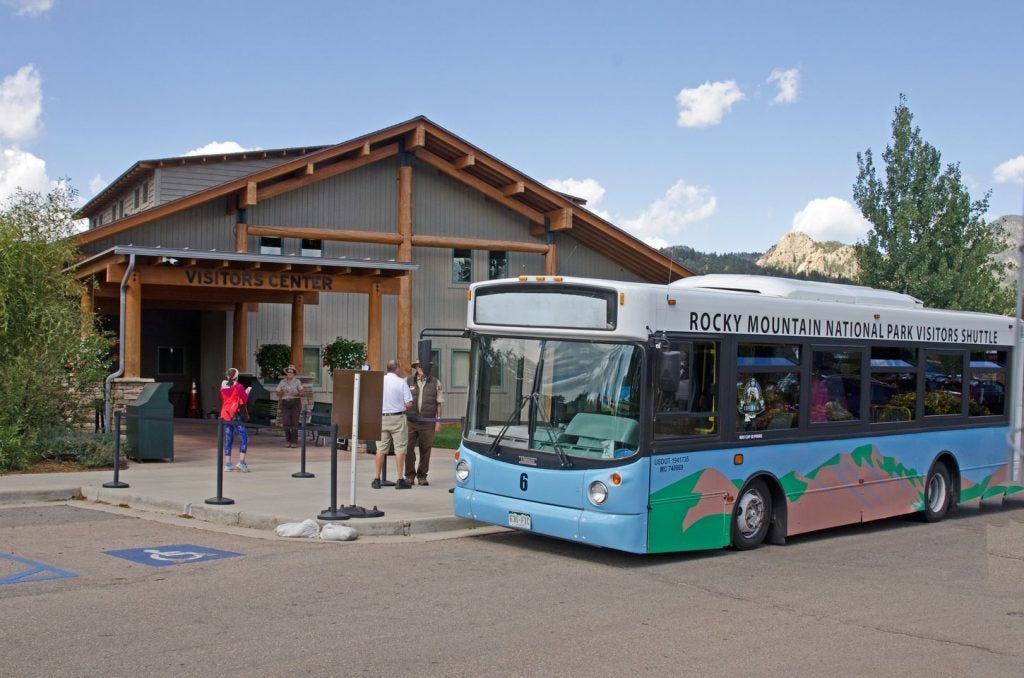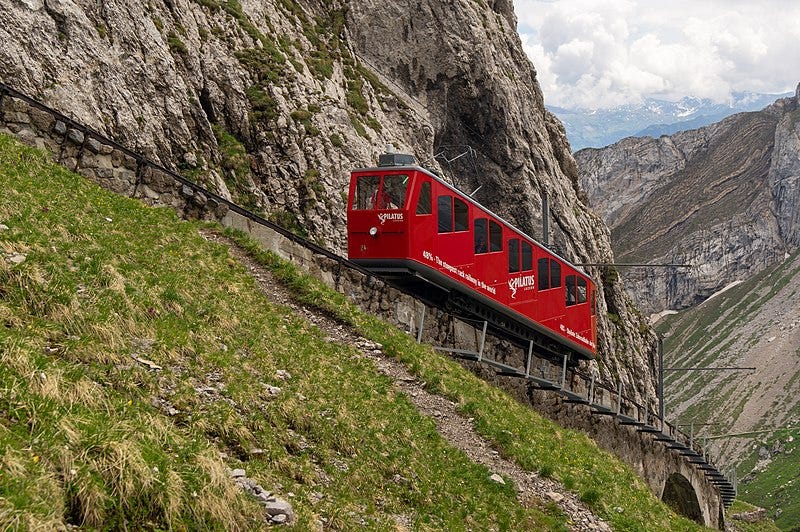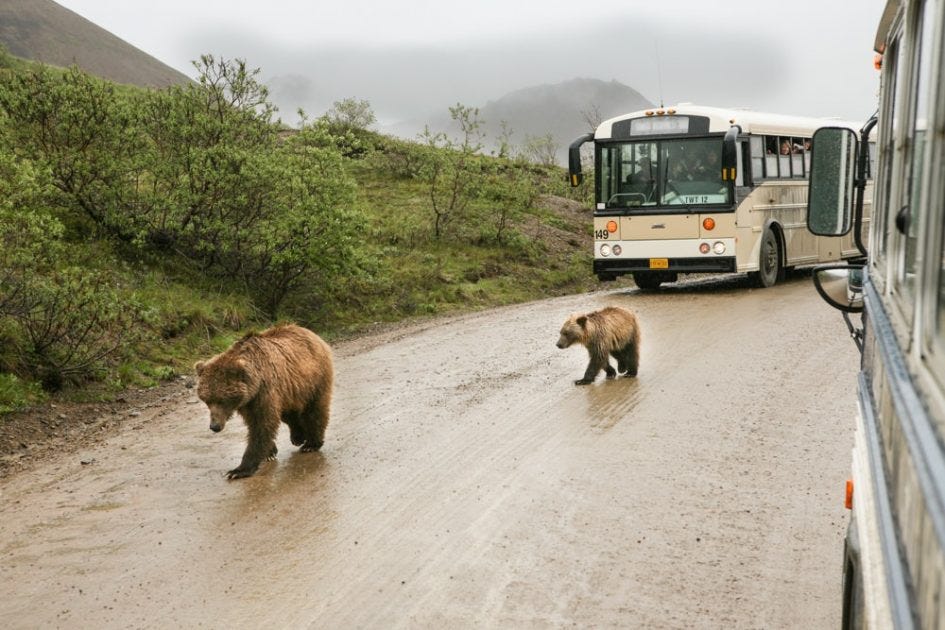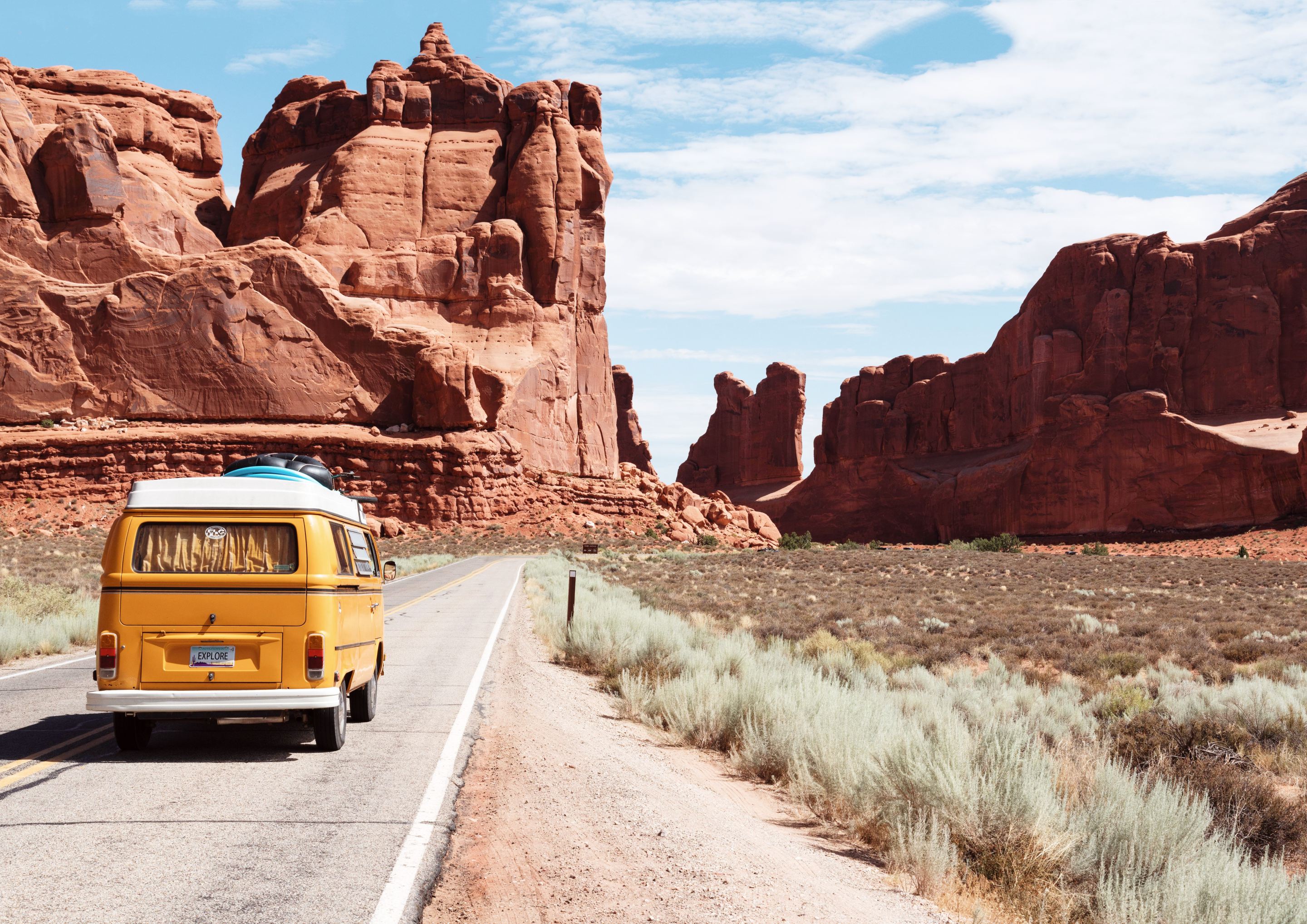Editor's note: a version of this article originally appeared on Millennial American Dream and is republished with permission
When it comes to making hiking and exploring national and state parks accessible without a car, the U.S, still has some room for improvement. While many of the most popular national parks here and in other countries around the world have successfully implemented innovative strategies to enhance accessibility and sustainability, the others can still take inspiration from these examples.
Look no further than Rocky Mountain National Park and Glacier National Park to witness the benefits of abundant bus shuttles within parks. By providing convenient transportation options, these parks reduce traffic congestion, minimize pollution, and make it easier for visitors to access hiking trails and attractions. Implementing similar shuttle services in popular US parks could significantly enhance accessibility and alleviate parking woes.

Ski resorts in various countries, as well as picturesque Switzerland, have long embraced alternative modes of transportation such as funiculars, cogwheel railroads, and aerial trams or gondolas. These scenic and efficient transportation options offer visitors breathtaking views while effortlessly connecting them to hiking trails. Introducing similar modes of transport within US parks could provide a unique and eco-friendly experience for park-goers.

Denali National Park in Alaska sets a prime example with its park-operated tour buses. These buses take visitors deep into the heart of the park, allowing them to fully immerse themselves in its natural beauty without the need for private vehicles. By implementing such tour bus systems in US parks, we can enhance safety, reduce congestion, and make exploration more accessible to all.

Parks worldwide have recognized the value of in-park accommodations managed by the park service. By providing lodgings within the park, more visitors can stay overnight, reducing the need for daily driving from nearby cities and lessening the environmental impact. Increasing the availability of in-park hotels and inns across US parks could create a sustainable and enjoyable experience for both visitors and the natural surroundings.
Inspired by successful models in Europe, US parks can introduce hiking hostels along trails. In France these are known as refuges. These cozy accommodations allow hikers to rest and rejuvenate during multi-day adventures without the burden of carrying camping gear. This initiative not only enhances accessibility for hikers but also fosters a sense of community among trailblazers.
Taking a page from Germany's playbook, US parks can introduce "pay what you can" snack and drink booths along popular hiking trails. These kiosks provide hikers with a chance to indulge in a quick bite or refreshing beverage, enhancing their enjoyment while contributing to park sustainability efforts.
@hesaidorshesaid Only in Germany, right?! 🤯🤩🇩🇪 #onlyingermany #visitgermany #beerlovers #bierliebe🍻 #travelgermany #discovergermany
♬ Sunroof - Nicky Youre & dazy
Recognizing that not everyone has access to specialized hiking gear, parks worldwide have established rental services for tents, backpacks, and day packs. By offering gear rentals, US parks can make hiking more accessible to a wider audience and reduce the financial burden of purchasing equipment.
Establishing reliable bus and train connections from major US cities and airports to lesser-known parks is crucial for achieving better access and dispersing visitor flow. By promoting intercity connections, national and state parks can encourage exploration of lesser-known destinations while alleviating over-tourism (due mainly to too many cars) in more popular parks.

By drawing inspiration from these worldwide examples, the US can enhance the accessibility of its parks and make them more enjoyable for everyone. Implementing transit connections, alternative transportation options, in-park accommodations, small cabin hostels, refreshment options, gear rentals, and long-distance transit links can transform the way we experience nature in the US. Let's embrace these ideas, work towards sustainable practices, and ensure that every adventurer, regardless of car ownership, can embark on unforgettable hiking journeys in our nation's parks.
Michael Moore writes at Millennial American Dream, an urbanism and transit blog with a focus on turning theory into action. You can also follow him on Threads at @micwmoore.






